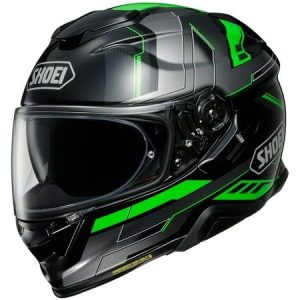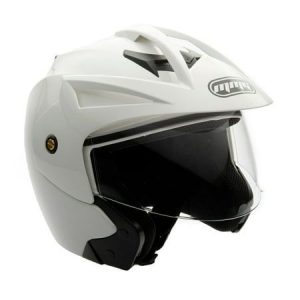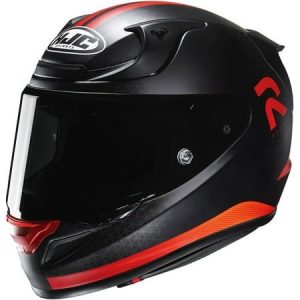So, you’ve gotten yourself a brand new motorcycle helmet. Shiny, sleek, and ready for countless adventures on the open road. But what about your old faithful helmet? It might be tempting to simply toss it in the trash, but hold on a minute! Motorcycle helmets, while essential safety gear with a limited lifespan, can actually be repurposed, recycled, or even retired in several ways.
Why Can’t I Just Throw Away My Old Helmet?
While it might seem like the easiest option, throwing your old motorcycle helmet in the trash isn’t ideal. Here’s why:

- Safety Hazard: Even a helmet that’s past its prime can look deceptively functional to someone unfamiliar with motorcycle safety standards. Someone might find it in the trash and think it’s usable, putting themselves at risk.
- Environmental Impact: Helmets are made from a combination of materials, including polystyrene, nylon, and various resins. These materials don’t always break down easily in landfills, contributing to environmental concerns.
Repurposing Your Old Motorcycle Helmet: Creative Solutions
Before you decide to toss your old helmet, consider getting creative and giving it a new life! Here are some fun and functional repurposing ideas:
- Art Project Masterpiece: Unleash your inner artist! The unique shape of a motorcycle helmet makes it a fantastic base for creative expression. Paint it, decorate it, or even turn it into a lampshade – the possibilities are endless.
- Planter with Personality: With a little modification, your old helmet can become a one-of-a-kind planter. Drill drainage holes in the bottom, add some potting soil, and plant your favorite flowers or herbs. Hang it up or display it proudly on a shelf.
- Pet Bed (for the Small Ones): For tiny pets like hamsters or guinea pigs, a clean, well-padded helmet can be a cozy and secure little haven. Just make sure it’s big enough for them to move around comfortably.
- Storage Solution on the Go: Got a motorcycle with a luggage rack? Your old helmet can transform into a handy storage container for small essentials like tools, gloves, or a first-aid kit. Secure it tightly with bungee cords to avoid it becoming a projectile while riding.
When repurposing your helmet, ensure it’s structurally sound and free of cracks or major damage.
Recycling Your Old Motorcycle Helmet: Checking Your Options
Unfortunately, traditional curbside recycling programs typically don’t accept motorcycle helmets due to the mixed materials involved. However, there are still ways to recycle your helmet responsibly:

- Motorcycle Manufacturer or Retailer Programs: Some motorcycle manufacturers or retailers might have helmet recycling programs in place. Check with your local dealerships to see if they offer such a service.
- Specialty Recycling Facilities: Research companies specializing in recycling composite materials. They might accept your helmet for proper disassembly and responsible disposal of its components.
Contact the recycling facility beforehand to inquire about their specific requirements and acceptance procedures.
Retiring Your Old Motorcycle Helmet: Donating for a Good Cause
If repurposing or recycling isn’t an option, consider donating your old helmet to a worthy cause:
- Motorcycle Safety Training Programs: Many motorcycle safety training courses use older helmets for demonstration purposes during their training sessions. Contact your local motorcycle safety organization to see if they accept helmet donations.
- First Responders and Emergency Services: Firefighters and other emergency personnel might use older helmets for training exercises on extricating riders from accidents. Reach out to your local fire department or emergency services to inquire about helmet donation possibilities.
When donating your helmet, ensure it’s in good condition and hasn’t been in a major accident. It should also meet the safety standards required by the recipient organization.
Safety First: When to Retire Your Old Motorcycle Helmet for Good
There are certain situations where repurposing, recycling, or donating your old helmet simply isn’t safe. Here’s when it’s time to say goodbye for good:

- Visible Damage: Cracks, deep scratches, or any signs of structural compromise are red flags. A compromised helmet won’t provide adequate protection in an accident.
- Expired Shelf Life: Most motorcycle helmets have a lifespan of around five to seven years. Check the manufacturer’s label for your helmet’s specific expiration date.
- Past Accident Involvement: Even if a helmet appears undamaged after an accident, the internal shock absorption materials might be compromised. Retire any helmet that’s been involved in a crash.
Safety should always be your top priority when riding a motorcycle. Never compromise on the quality and effectiveness of your helmet.
The Final Ride: Taking Care of Your New Motorcycle Helmet
Now that you’ve given your old helmet a responsible send-off, it’s time to focus on keeping your new one in top shape. Here are some essential tips to ensure your new helmet provides optimal protection and longevity:

- Proper Storage: When not in use, store your helmet in a cool, dry place away from direct sunlight. Extreme heat can damage the helmet’s materials and compromise its effectiveness.
- Cleaning and Maintenance: Regularly clean your helmet’s visor and inner liner according to the manufacturer’s instructions. Use a mild soap solution and avoid harsh chemicals or abrasive cleaners.
- Inspection Matters: Develop a habit of inspecting your helmet before every ride. Look for any signs of damage, cracks, or excessive wear and tear. Pay close attention to the visor’s clarity and the integrity of the chin strap.
- The Snug Fit: A properly fitting helmet is crucial for optimal safety. Your helmet should feel snug but comfortable, not loose or constricting. Ensure the chin strap is secure and not frayed or damaged.
By following these simple care tips, you can extend the lifespan of your new helmet and ensure it continues to provide the best possible protection on your motorcycle adventures.
Beyond the Helmet: Gearing Up for Safety
While a high-quality helmet is paramount, it’s just one piece of the motorcycle safety puzzle. Here are some additional safety essentials to consider:

- Protective Gear: Invest in a proper motorcycle jacket, pants, gloves, and boots that offer abrasion resistance and impact protection.
- Motorcycle Safety Course: Completing a motorcycle safety course can equip you with the knowledge and skills to navigate the road confidently and safely.
- Defensive Riding Techniques: Always practice defensive riding techniques. Be aware of your surroundings, anticipate potential hazards, and maintain a safe following distance.
Remember, safety is a shared responsibility on the road. By being a prepared and responsible rider, you can minimize risks and enjoy countless miles on your motorcycle.





